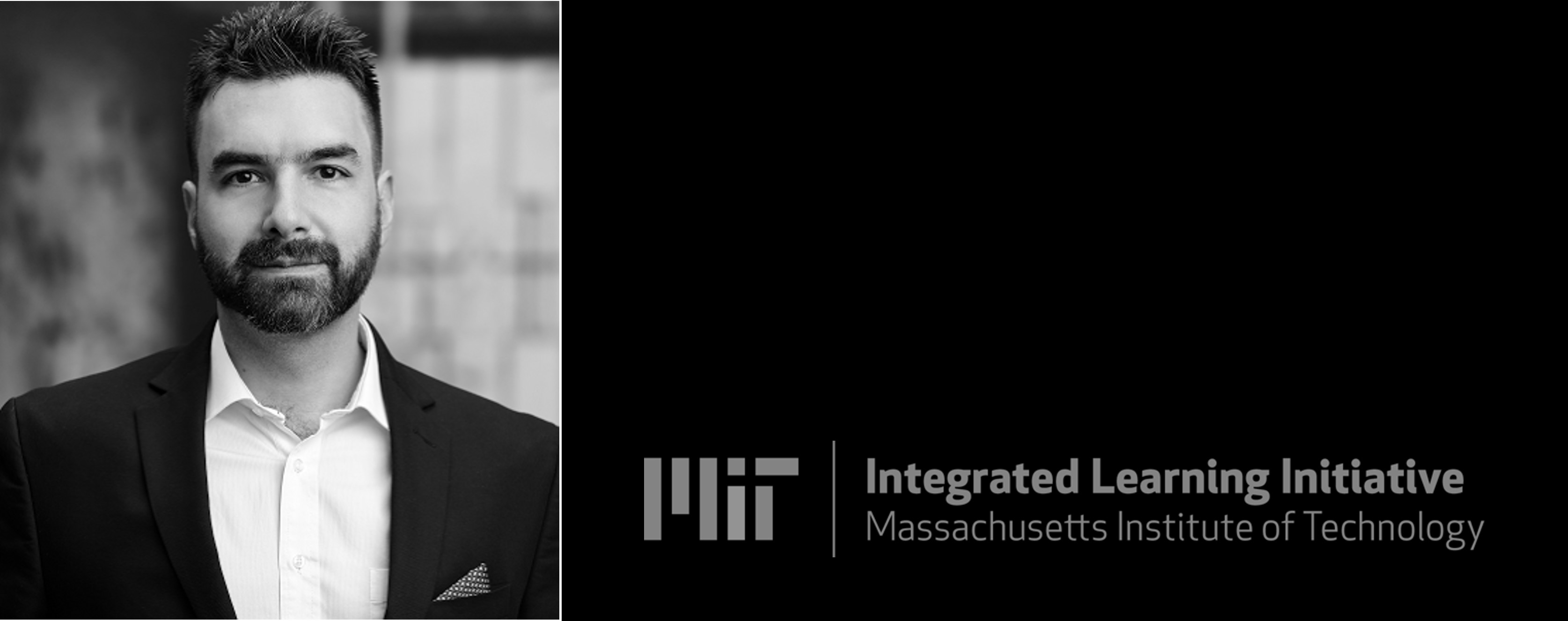
Andrés Felipe Salazar Gomez’s work focuses on neuroscience and education. Prior to joining Open Learning, he was a postdoctoral associate at the MIT Jameel World Education Lab working on data science education, and formerly a postdoctoral fellow at the Distributed Robotics Lab at MIT where he explored the use of brain activity for volitional control of robots during human-robot collaborative tasks. He was a visiting student at the Miller Lab at the Picower Institute for Learning and Memory at MIT working on non-human primate electrophysiology and decoder error detection during brain-machine interface (BMI) control. The focus of his research is education assessment, implicit learning, developing BMI for augmentative and alternative communication and human-robot interaction, and exploring ways to improve higher education in Latin America especially for STEM education. He received his B.Sc. in Biomedical Engineering from EIA University, Colombia; and earned his Ph.D. in Computational Neuroscience from Boston University.
Andrés is part of a research team evaluating the MIT Refugee Action Hub (ReACT), soon to be renamed MIT Emerging Talent, an institute-wide effort to develop global education programs that target the needs of emerging, underserved communities, and refugees, migrants and economically disadvantaged populations. ReACT is a recent recipient of a MITili education effectiveness grant for their research on comparative studies between students choosing internships versus self-guided experiential projects within their program. You can learn more about their research here.
We’ll start with an easy question, what is experiential learning and how is it helpful in the classroom and beyond?
Experiential learning, especially in the context of the ReACT and Emerging Talent programs, refers to the process of “learning by doing” after the core instruction section (individual and group learning) of the learning journey has been provided. The key aspect of experiential learning is for learners to put into practice the content, skills, mindsets and behaviors nurtured during the training so they interact (referring to the ICAP model), reflect, troubleshoot, and dig deeper as they try to reach a specific goal (i.e. answer a question or solve a problem). It is this process of going beyond that really consolidates the learning and provides experience. More importantly, when referring to the community supported by ReACT, experiential learning gives learners self-confidence of their capacity to face future professional challenges, including jumping to the job market.
How important of a role has having mentors played in your career, and how do you see mentorships expanding to help underserved communities?
Fundamental. I would not be answering this Q&A if it were not for my mentors, both in Colombia as in the Boston area. We all need role models and guidance. And by having mentors I include our peers as well, not only senior professionals. Mentorship is a key component in the learning process: We learn to walk and speak not only because it is wired in our brains, we see others doing it. We feel inspired, almost forced, to replicate such behavior. The same applies when discussing technical and human skills: 1) mentors facilitate our personal and professional growth by inspiring us to follow their steps (mentors usually ask the right questions, they rarely answer them, that is our task as mentees via self-discovery), 2) mentors allow us to learn from their own mistakes so we do not have to repeat them (mentors usually wish for their mentees to have bigger accomplishments than their own), and 3) when we make mistakes, mentors know how to guide us into learning and using those lessons to gain experience and grow (mistakes promote teaching signals, a basic rule in goal-oriented tasks).
When we talk about underserved communities, the importance of finding role models, people that get you and are in your context, is key for empowering them. Representation is fundamental when we talk about mentoring. Programs like ReACT and Emerging Talent provide support that inspires underserved communities and gives them confidence to succeed.
There has been a lot of research on neurodiversity and the role that plays in educational effectiveness. How can MIT work to make education more inclusive for all learners?
It is key that we are acknowledging neurodiversity as an important variable when designing the learning experience. I expect academic institutions, including MIT, to allocate resources and training to support the educational experience of all the community, including the neurodiverse population. Nevertheless, it is hard to change a century-old practice. Best practices for teaching and promoting learning are still not fully employed in the academic institutions (habits are hard to break), so I hope more training into best practices becomes a must, and even a badge of pride, amongst instructors and faculty.
What initially led you to study neuroscience and its effects on education?
Anesthesia and brain-computer interfaces (BCI) research brought me into the field of neuroscience. I specialized for almost a decade in the use of electroencephalographic recordings for understanding consciousness (for studying anesthesia) and decoding intentions and expectations (for BCI and in human-robot interaction). As part of those projects I studied error-related potentials (ErrP), an error signal that is used for learning. Part of that research connected me with my team today. Currently, with other researchers at MIT, we are exploring the use of other physiological signals to extract implicit knowledge and make it explicit.
What is your favorite thing about MIT?
One of my favorite things at MIT, specifically at Open Learning, is the tradition to support new initiatives, sometimes out of the box and risky but with great potential to have impact at MIT and globally. That is extremely encouraging when we ask ourselves how innovation is fostered.